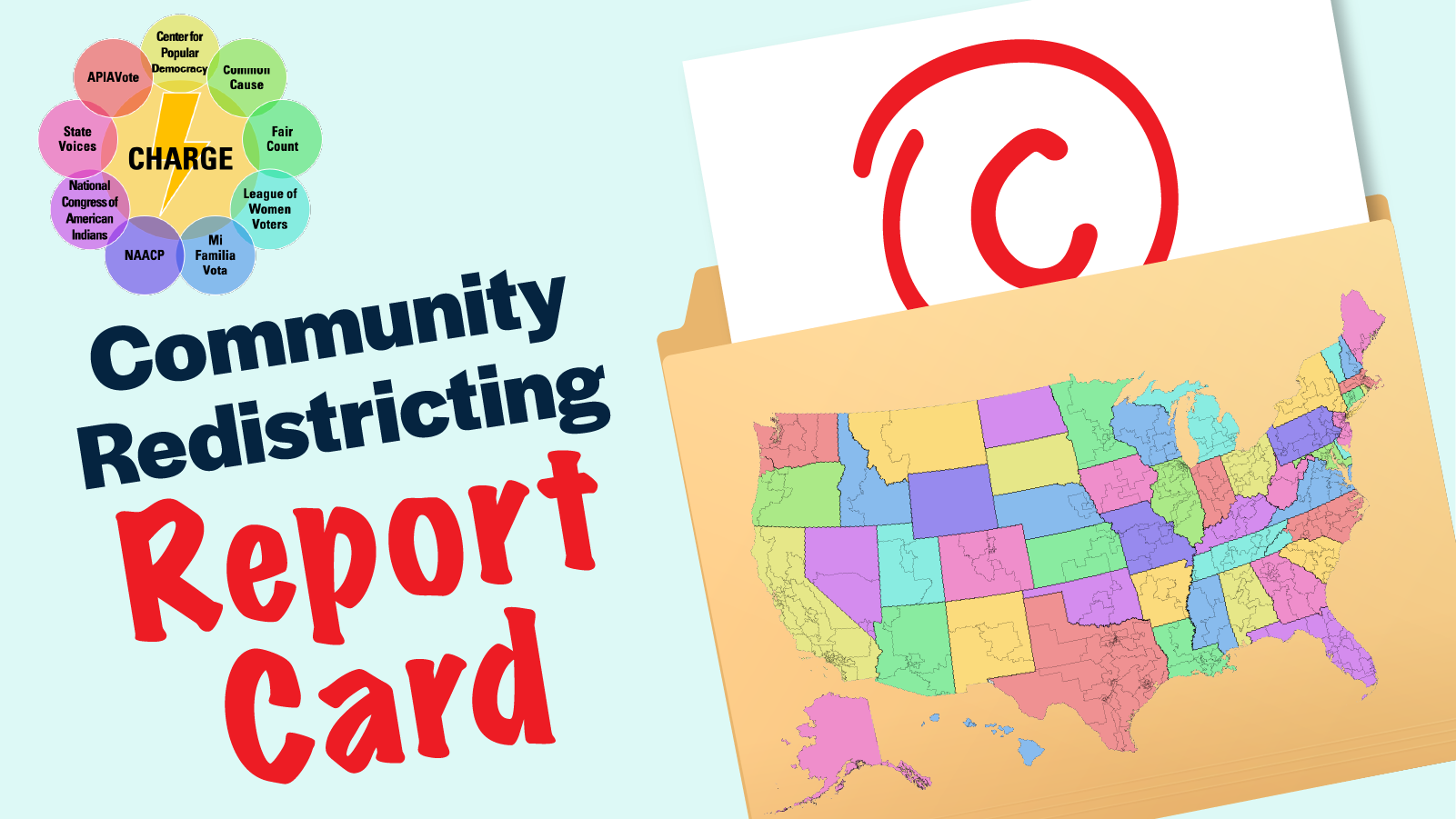Press Release
50 State Report: Delaware Earns C- for Redistricting from Common Cause

Today, Common Cause, the leading anti-gerrymandering group, published a report [LINK] grading the redistricting process in all 50 states from the view of the community. The comprehensive report evaluates public access, outreach, and education in each state based on an analysis of more than 120 detailed surveys and more than 60 interviews.
Delaware earned a disappointing C-. The report found the Delaware state legislature’s redistricting process protected incumbent districts and failed to give the public adequate opportunities to engage in the process. In particular, the report highlights a history of noncompetitive elections in Delaware, which has led to decreased civic engagement.
“After a close look at all 50 states, this report shows more community voices produce better maps,” said Dan Vicuña, Common Cause national redistricting director. “When everyone can meaningfully participate and have their input reflected in the final maps, that’s how we achieve fair elections voters can trust. We found voting districts that prioritize community interests are the gateway to elections that lead to strong schools, a fair economy, and affordable healthcare.”
Common Cause graded each state for its state level redistricting. Some states received a second grade for their local redistricting process in cases where advocates provided data. Each interview and survey asked participants about the accessibility of the process, the role of community groups, the organizing landscape, and the use of communities of interest criteria.
“Though we made some improvements in terms of transparency, we need to prepare Delaware voters to engage more next time around,” said Claire Snyder-Hall, executive director of Common Cause Delaware. “We need to ensure that the public understands the importance of redistricting, and the direct impact that the process can have on communities for years to come.”
Common Cause found the most powerful reform is independent, citizen-led commissions where voters—rather than elected officials—administer the process and hold the power of the pen to draw maps. Independent commissioners were found to be more interested in fair representation and community input— rather than electability or party control.
The report was authored by Common Cause, Fair Count, State Voices, and the National Congress of American Indians (NCAI).
The report was published in collaboration with the Coalition Hub for Advancing Redistricting and Grassroots Engagement (CHARGE), which includes Common Cause, Fair Count, League of Women Voters, Mia Familia Vota, NAACP, NCAI, State Voices, APIAVote, and the Center for Popular Democracy.
To view the report online, click here. [http://chargereportcard.org]
